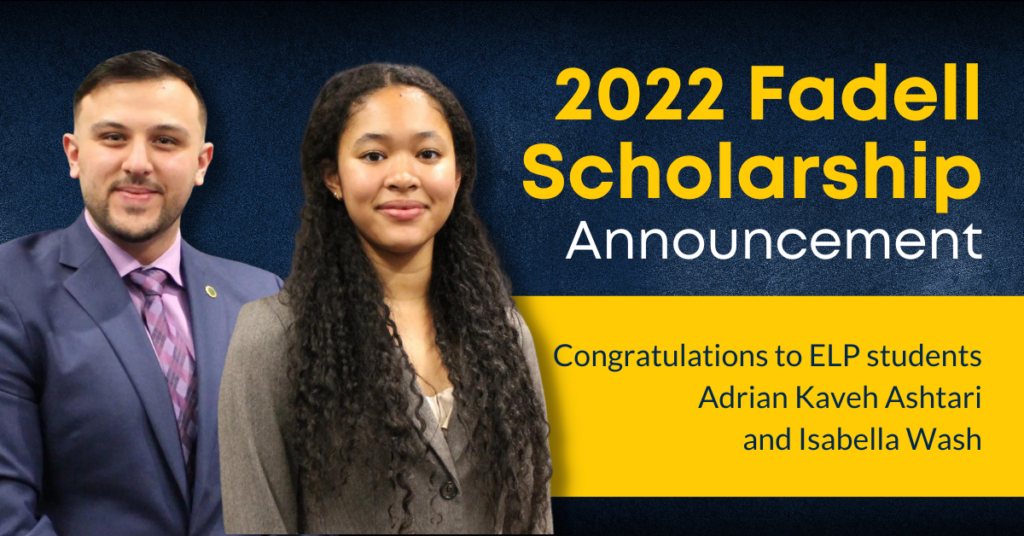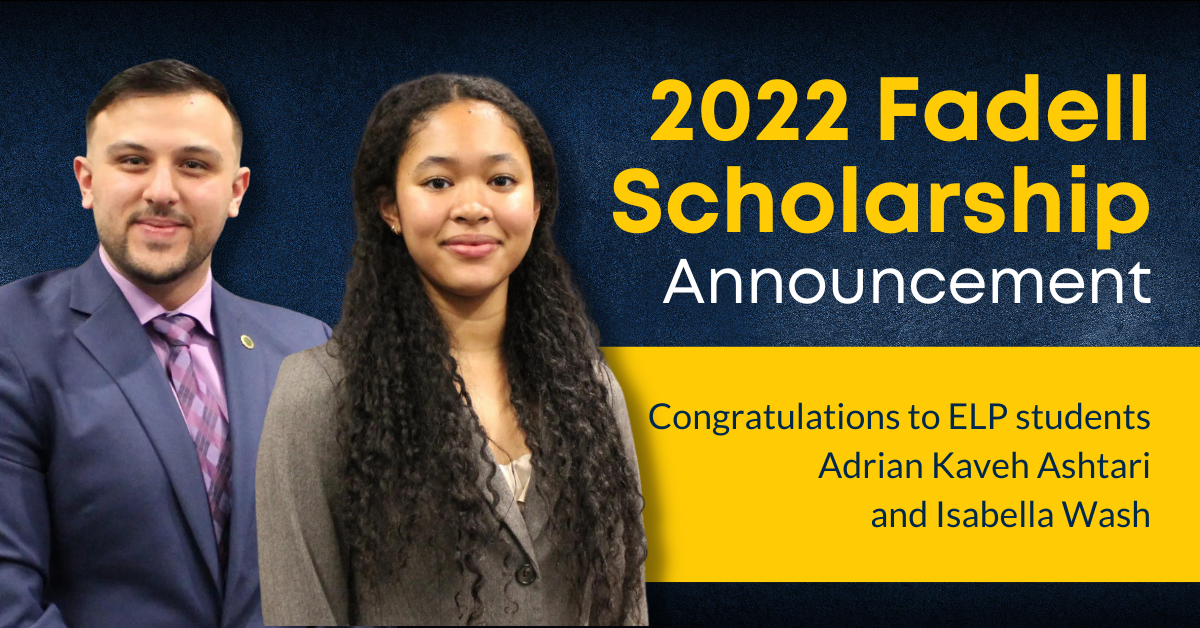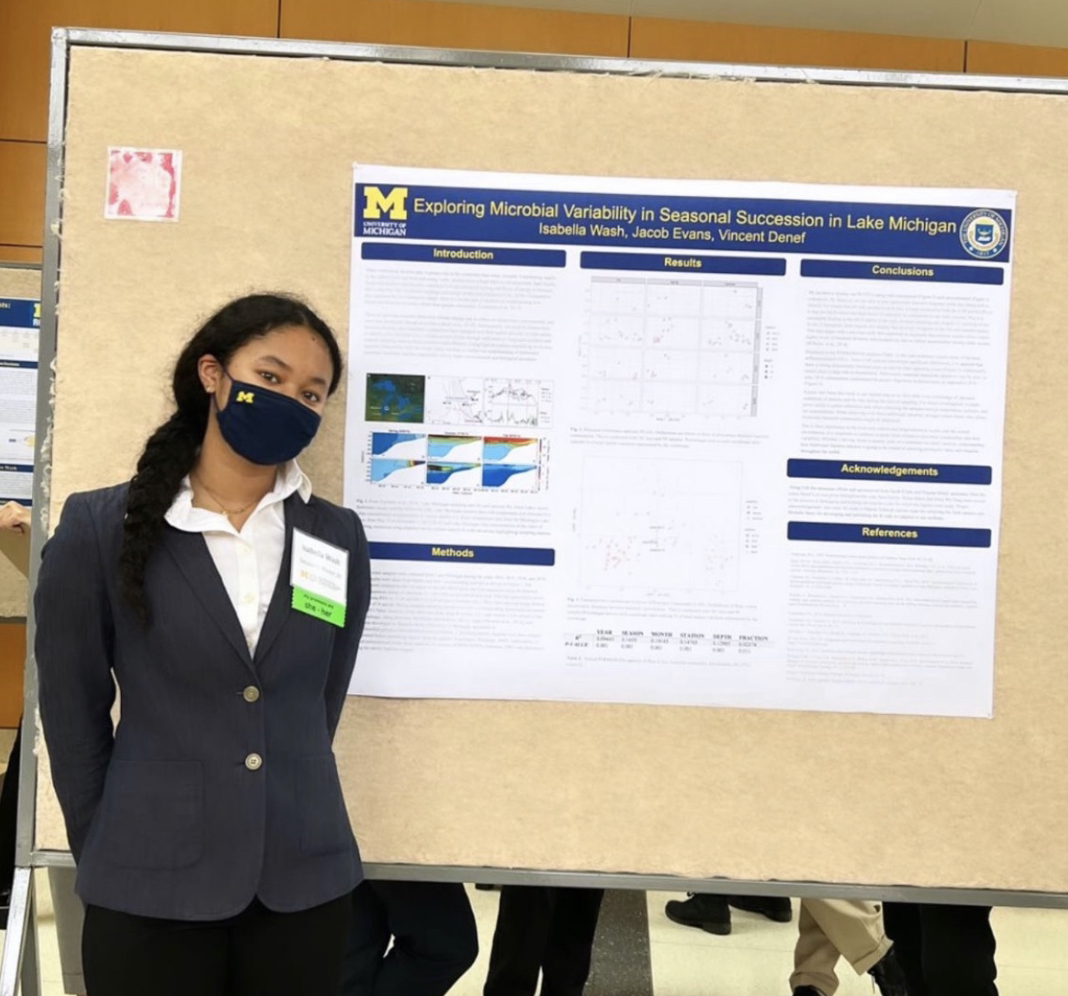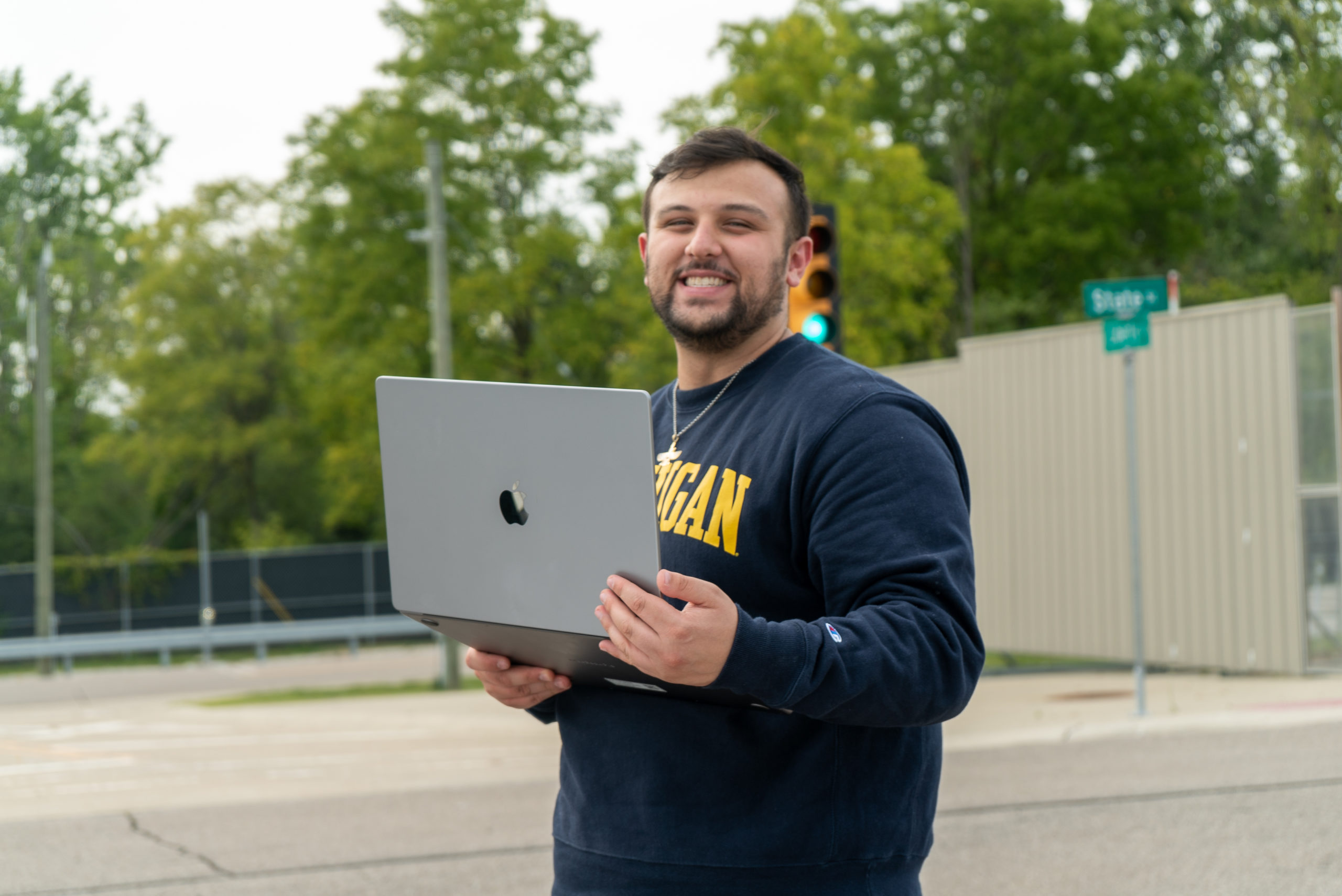Continuing to champion the entrepreneurial pursuits of undergraduate students at the University of Michigan, the Center for Entrepreneurship is happy to announce that the prestigious Fadell Scholarship has been awarded to Bella Wash and Adrian Kaveh Ashtari for the 2022 school year.
The scholarship is thanks to a generous gift from Tony Fadell, BSE CE ‘91, and Danielle Lambert. The scholarship aims to support students who exhibit exceptional entrepreneurial spirit by leveraging their multidisciplinary talents.
“The Fadell Scholarship recognizes the ambitions and talents of two of the most entrepreneurial undergraduate students at U-M. Bella and Adrian are not only committed to and capable of achieving disruptive impact in their careers, they are targeting innovations to the global food supply and public health to improve the human condition,” said Nick Moroz, Director of Entrepreneurial Practice at the CFE. “They plan to use the tools of entrepreneurship to make the most positive difference they can, and that exemplifies what it means to be a Michigan Entrepreneur.”
Bella (Chemical Engineering ‘25) and Adrian (Public Health Sciences ‘22) are both members of the CFE’s Entrepreneurs Leadership Program (ELP.)
Bella graduated from Pacifica Christian High School in Santa Monica, California. When researching her options for college, she was drawn to the University of Michigan’s “endless number of opportunities and amazing resources for her interests.”
When Bella arrived on the University of Michigan’s campus, located more than 2,000 miles away from her alma mater, she found herself inspired by the entrepreneurial community. “I have always thought entrepreneurs drive society. I love how they encourage innovation and proactivity,” Bella said.
While finding her place within the entrepreneurial community, Bella found the CFE and decided to apply for the Entrepreneurship Leaders Program. She says, “As an aspiring entrepreneur, I thought the CFE was an amazing resource. ELP was a great opportunity to learn about entrepreneurship and create a community of future founders.”
Bella has taken a very calculated approach to her education at U-M to support ultimate goal: to use genetically modified organics (GMOs) to make nutritious, plentiful food for underserved areas across the globe. This goal was inspired by golden rice, a GMO modified for extra vitamins and minerals and its use in the Philippines, where Bella’s mom hails from.
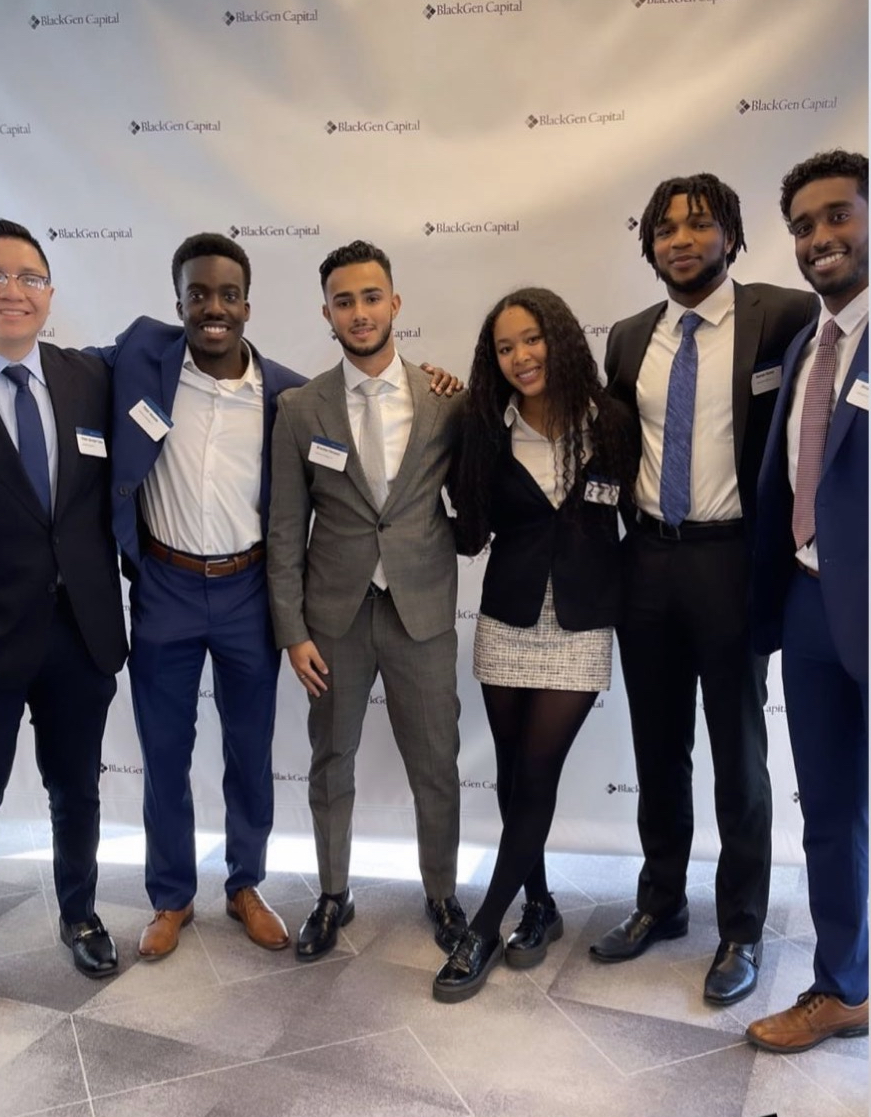
Keenly understanding that technical prowess and entrepreneurial ambition alone would not propel her to her ultimate goal, Bella sought an immersive education related to ethics that would serve her well in dealing with such a powerful technology as GMOs. In addition to spending her free time reading up on various seminal works from key philosophers, she joined the Central Student Judiciary as an Associate Justice. This led her to taking a patent law class and she credits the combination of readings, experiences, and classwork as having improved her decision-making skills.
On three key fronts, entrepreneurship, technology, and ethics, Bella has committed herself to gaining a strong understanding of how to develop and utilize GMOs to do the most good possible. The resources, network, and support from the Fadell Scholarship will certainly play a critical role in her success in this endeavor.
Similarly to Bella, Adrian was also drawn to the University for its wealth of opportunities and resources. However, he also held a deep bond with U-M long before attending. He grew up in Bloomfield Hills, Michigan, just 50 miles from Ann Arbor, and comes from a long line of Wolverines. “Growing up in a family of University of Michigan Alumni, I have always been surrounded by the Wolverine legacy,” Adrian said.
For Adrian, attending the University of Michigan was a no-brainer. “The University of Michigan holds a tradition of excellence in learning, teaching, and growing with a commitment to public service and giving back to our communities. Each of these aspects fell in line with my values, so Michigan was the perfect match.”
Adrian found his place in the Entrepreneurship Leaders Program, where he was able to learn from and grow with a cohort of students from all backgrounds – something he says has bee
n foundational to his education. “One of the best parts of ELP is that we all come from various disciplines and experiences, which has helped shape our own unique perspectives. Exposure to others’ perspectives while sharing and expanding on my own has fueled my growth immensely and taught me how to be a better leader.”
Exhibiting a strong sense for the opportunity to create value through entrepreneurship and an action-oriented approach, Adrian has led teams on two interesting projects with commercial promise in response to the pandemic.
At the earliest stages of the pandemic, many public health systems needed improved means of communicating with constituents. Adrian organized and led a team of students that developed an artificial intelligence (AI) chatbot which would reply to constinutent questions regarding COVID-19 through text messages. They pitched the prototype to the New Mexico Department of Health, which showed interest. After iterating on the product with respect to the unmet needs of the Department of Health, Adrian and his team were successful in delivering the software which was used to send out emergency alerts such as new executive orders and policies, the number of cases in New Mexico’s counties, answer questions regarding COVID-19, and even connect residents to rent and mortgage assistance programs.
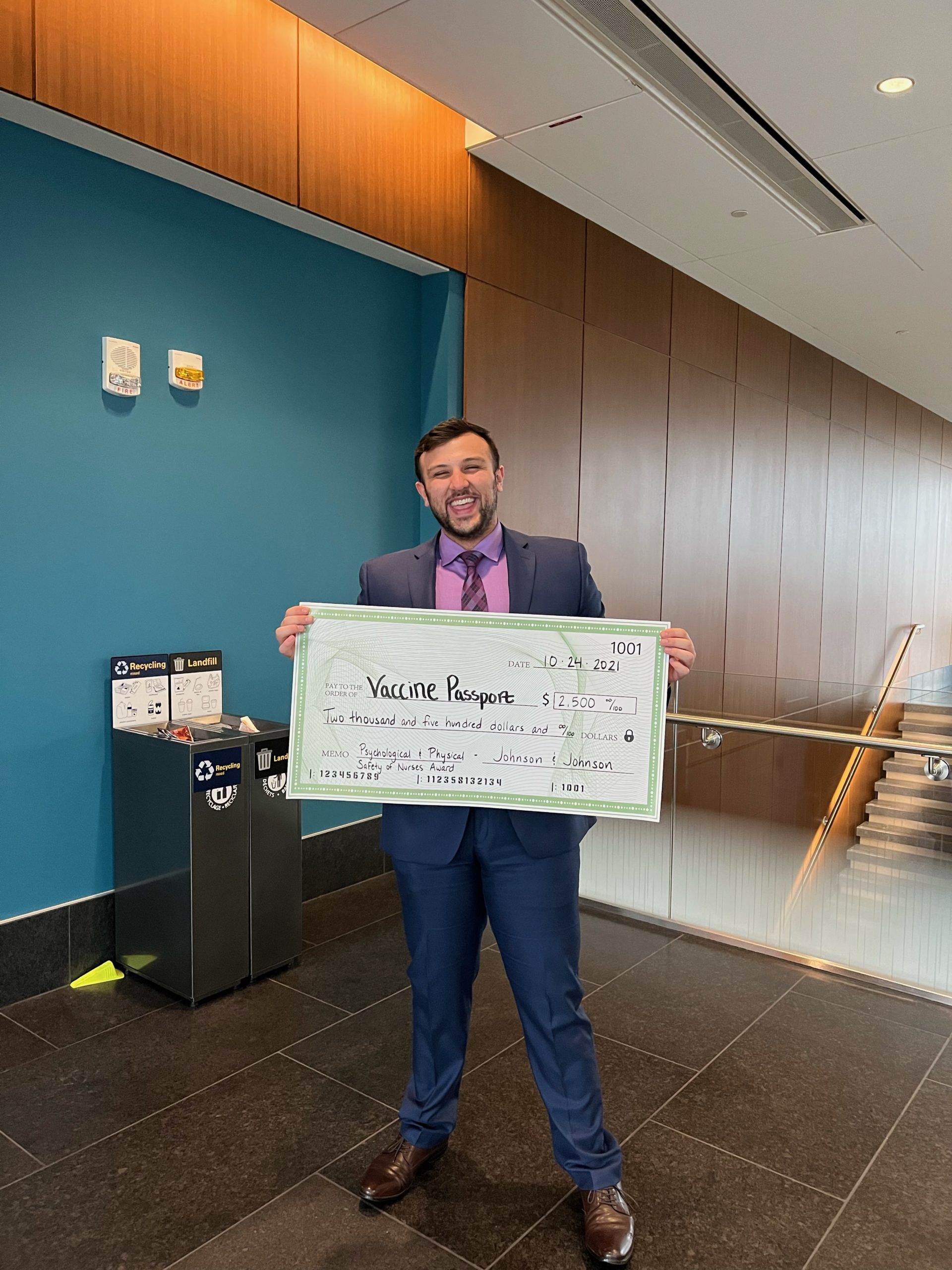
For both Adrian and Bella, the Fadell Scholarship offers an opportunity to continue their education while using innovation and entrepreneurship skills gained at U-M to make a lasting, and potentially global, impact.
“Being a Fadell scholar allows me to continue to learn and develop critical public health and entrepreneurship skills under the mentorship of my Center for Entrepreneurship and Public Health communities,” said Adrian.
“I’m immensely grateful to Tony Fadell and Danielle Lambert for this opportunity as it allows me to move towards my dream of achieving health equity for every individual and fulfilling my passion for improving the well-being of communities.”

